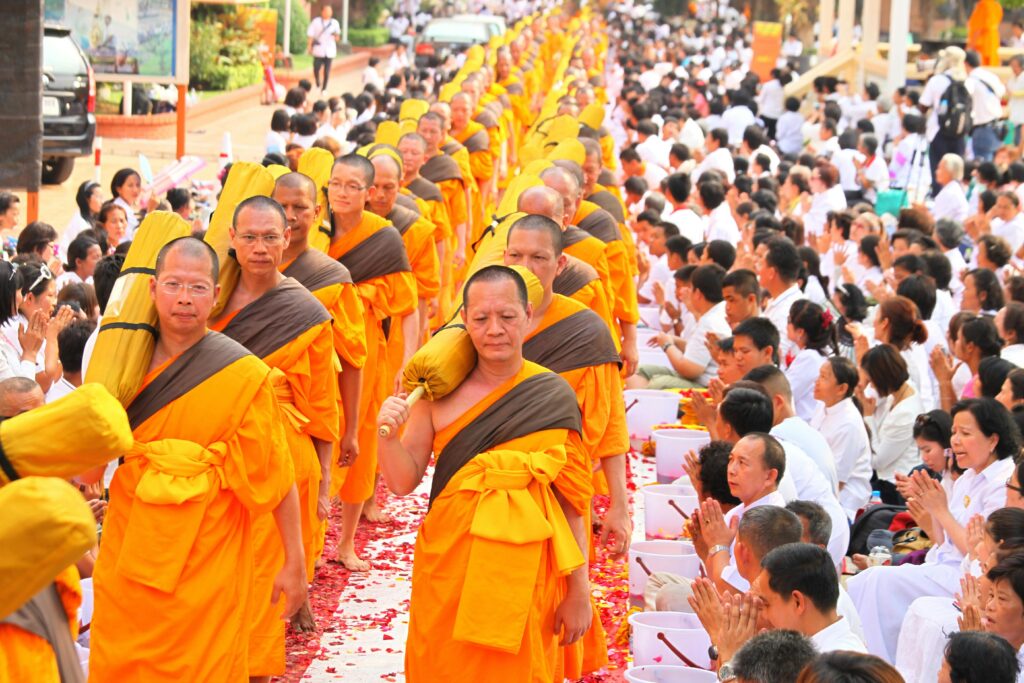Sarvodaya, a fundamental concept in Buddhism, encapsulates the idea of the welfare of all beings. It is a philosophy deeply rooted in compassion, empathy, and the desire to alleviate suffering for everyone, not just oneself or a select few. In this blog post, we will delve into the essence of Sarvodaya and explore how it can be explained as a means of promoting peace and well-being in the context of organizations like the Municipal Alliance for Peace (MAP).
I. Understanding Sarvodaya
To comprehend the concept of Sarvodaya, we must first understand its Buddhist origins. Sarvodaya is derived from two Sanskrit words: “Sarva,” which means all, and “Udaya,” which means rise or uplift. In essence, Sarvodaya is the philosophy of the rise and upliftment of all beings.
Compassion and Loving-Kindness
Sarvodaya begins with the cultivation of compassion and loving-kindness towards all living beings. Buddhists believe that the path to enlightenment involves not only one’s personal spiritual growth but also the elevation of the collective well-being of humanity.
The Interconnectedness of All Beings
Central to Sarvodaya is the recognition of the interconnectedness of all beings. Buddhists understand that our actions have consequences not only for ourselves but for others as well. Thus, the well-being of each individual is intimately tied to the well-being of the whole.
The Practice of Generosity
Sarvodaya encourages the practice of generosity, both in material and spiritual terms. It emphasizes sharing one’s resources, knowledge, and kindness with others, fostering an environment of mutual support and well-being.
II. The Municipal Alliance for Peace (MAP)
Now that we have a foundational understanding of Sarvodaya, let’s explore how this Buddhist concept can be explained as a means of promoting peace and well-being in organizations like the Municipal Alliance for Peace (MAP).
The MAP’s Mission
The Municipal Alliance for Peace (MAP) is a network that exists to promote peace in the Middle East. Its mission aligns closely with the principles of Sarvodaya. By facilitating municipal cooperation between Palestinian and Israeli local authorities, MAP aims to create a peaceful and harmonious environment in the region.
The Essence of Cooperation
Sarvodaya encourages cooperation and collaboration as essential components of fostering well-being for all. MAP’s initiatives, which involve joint projects between Palestinian and Israeli municipalities, exemplify this spirit of cooperation. These projects work toward shared goals, such as improving living conditions, infrastructure, and community development.
Extending the Circle of Cooperation
MAP goes beyond the borders of the Middle East by seeking cooperation with municipalities in other countries. This expansion aligns with Sarvodaya’s concept of the interconnectedness of all beings. It recognizes that peace and well-being are global aspirations and that cooperation knows no boundaries.
III. Practical Applications of Sarvodaya in MAP
Now, let’s delve into some practical applications of Sarvodaya within the framework of MAP.
Conflict Resolution
Sarvodaya emphasizes conflict resolution through dialogue and understanding. MAP’s efforts to bring together Palestinian and Israeli local authorities reflect a commitment to resolving long-standing conflicts through peaceful means. By facilitating communication and cooperation, MAP contributes to conflict transformation in the region.
Social and Economic Development
Sarvodaya advocates for the well-being of all, which includes socio-economic development. MAP’s joint initiatives aim to improve the living conditions of communities by addressing issues such as healthcare, education, and infrastructure. These efforts align with the Buddhist principle of reducing suffering and promoting the welfare of all.
Spreading Compassion
At the heart of Sarvodaya is the practice of compassion. MAP’s work encourages compassion and empathy among its members and partner organizations. By fostering an environment of understanding and compassion, MAP contributes to the well-being of the people it serves.
IV. Challenges and Future Possibilities
While Sarvodaya offers a profound philosophy for promoting the welfare of all, there are challenges that organizations like MAP may encounter in implementing these principles fully.
Political Complexities
The Middle East is a region marked by complex political dynamics. Achieving peace and
Cultural and Religious Differences
Differences in culture and religion can pose obstacles to cooperation. Sarvodaya encourages transcending these differences, but it requires a deep commitment to dialogue and understanding.
Sustainability
Ensuring the sustainability of peace initiatives is essential. Sarvodaya’s principles of interconnectedness and long-term well-being require ongoing efforts to maintain peace and well-being.
Despite these challenges, organizations like MAP have the potential to bring about positive change by incorporating Sarvodaya principles into their work.
In conclusion, the Buddhist concept of Sarvodaya, which focuses on the welfare of all beings, offers a profound philosophy that can be applied to organizations like the Municipal Alliance for Peace (MAP). MAP’s mission of promoting peace in the Middle East aligns closely with the principles of Sarvodaya, emphasizing cooperation, compassion, and well-being for all. By implementing Sarvodaya’s principles in practical ways, MAP and similar organizations have the potential to contribute significantly to peace and harmony in the world, demonstrating that the aspiration for the welfare of all is a universal and timeless ideal.
